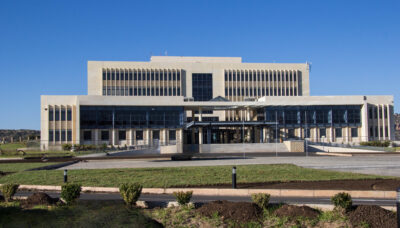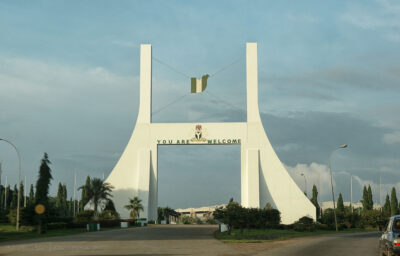In the past weeks, Supreme Court nominee Elena Kagan has attracted the ire of countless, largely conservative, political blocs. Yet, as Maggie Hyde notes here, opposition aroused by the hearings has not been limited to traditionally conservative camps. The prime motivation behind atheists' and secularists' lukewarm reception? Kagan is slated to replace Justice John Paul Stevens---perhaps the justice most committed to the doctrine of separation between Church and State that the court has ever seen. And her credibility among secularists and atheists is tenuous, to say the least.
here & there
Announcements, events, and opportunities related to topics of interest to TIF readers are posted here. Additionally you may find round-ups of news items and brief commentary on current events.
For a listing of all of the events announcements, click here.
For a listing of announcements regarding books, click here.
CFP: “Islam and Religious Norms in the Public Sphere”
by Charles GelmanThe iGov-Institutions and Governance Program of the University of California, Berkeley, and the Robert Schuman Centre of the European University Institute, with the support of the SSRC's Academia in the Public Sphere: Islam and Muslims in World Contexts program, are funding a series of papers on Islam and Religious Norms in the Public Sphere. The papers will be presented during 2 workshops (one in Florence and one in Berkeley) and will be published as working papers on the network website together with policy briefs. Click here for details.
Nasr Abu Zayd, a liberal Egyptian Qur’anic scholar, dies at 66
by Jake AlterNasr Abu Zayd, a liberal Egyptian Qur'anic scholar, died yesterday in a Cairo hospital. He had been living in exile in the Netherlands since 1995 after being declared an apostate and having his marriage annulled by an Egyptian court. In his work, Abu Zayd distinguished between the 'Meccan verses' and the 'Medinan verses' of the Qur'an. The 'Medinan verses,' he believed, should be read within their context and should not be used to establish an Islamic polity in the modern era; he argued against the atomistic approach to reading the Qur'an. Brian Whittaker draws on a 2008 interview he conducted with Abu Zayd to discuss modern interpretations of the Qur'an---as they relate to the Islamic polity---the Muslim Brotherhood in Egypt, and the drama of Abu Zayd's exile.
Not just a bill to support women’s rights or secular values
by Amanda KaplanOn July 13, French parliament will vote on a bill to ban burqa-style veils in the name of gender equality and secular values. More than advocating for women's rights and a "state-sanctioned Islam that respects the secular state," this particular version of the bill also implicates "husbands and fathers who impose such veils on female family members."
Why the Assemblies of God is like the Democratic Party
by John SchmalzbauerNew York Times columnist Charles Blow began his Saturday piece with a surprising question: "Which political party’s members are most likely to believe that Jesus will definitely return to earth before midcentury?" Answer: the Democrats.
Grand Ayatollah Mohammed Hussein Fadlallah dies at age 75
by Jake AlterGrand Ayatollah Mohammed Hussein Fadlallah, the influential and controversial Lebanese Shi‘i spiritual leader, died Sunday morning in Beirut at age 75. Though his oft-attributed spiritual leadership of the political party/militant group Hezbollah has been called into question, he was a vastly influential marja (a Shi‘i religious authority) throughout the Shi‘i world community. He was considered a terrorist by much of the Western world with ties to the "1983 bombings of two barracks in Beirut in which 241 United States Marines and 58 French paratroopers were killed." He narrowly escaped assassination attempts in 1985 and 2006. While he sympathized with terrorist inclinations and vehemently spoke out against the U.S. and Israel, he also supported many progressive Islamic notions. He advocated for women's rights, was well respected in the female community, and spoke out against the Iranian model.
The right to bear arms. . . and pray. . . simultaneously
by Amanda KaplanThe right to bear arms and to pray are, as of last night, legally intertwined in Louisiana, as Gov. Bobby Jindal has "signed a bill into law that will allow people to bring concealed weapons into houses of worship."
Discussion: All religions the same?
by David WalkerThe Washington Post has initiated a discussion on sameness, similarity, and difference among religions, featuring Stephen Prothero, Cal Thomas, Robert Thurman, Susan Jacoby, and David Wolpe.
Discussing mosques, minarets, and crosses
by Ruth Braunstein, David Buckley and Grace YukichRuthie, Grace and David here, reporting live from the IWM International Summer School in Philosophy and Politics in Cortona, Italy. We are here with forty graduate students and post-docs and an inspiring group of faculty from over 20 countries to explore a range of issues related to religion in public life. And over the next two weeks, we look forward to sharing some of our discussions with the readers of The Immanent Frame. Today we would like to talk about an issue we discussed in the first session of our course on “The Role of Faith in Public Discourse,” taught by Nilüfer Göle and Michael Sandel.
Sikhism in Afghanistan
by Jake AlterIn The Guardian, Nushin Arbabzadah highlights Talibani intolerance of an often forgotten Afghan religious minority, the Sikhs.













